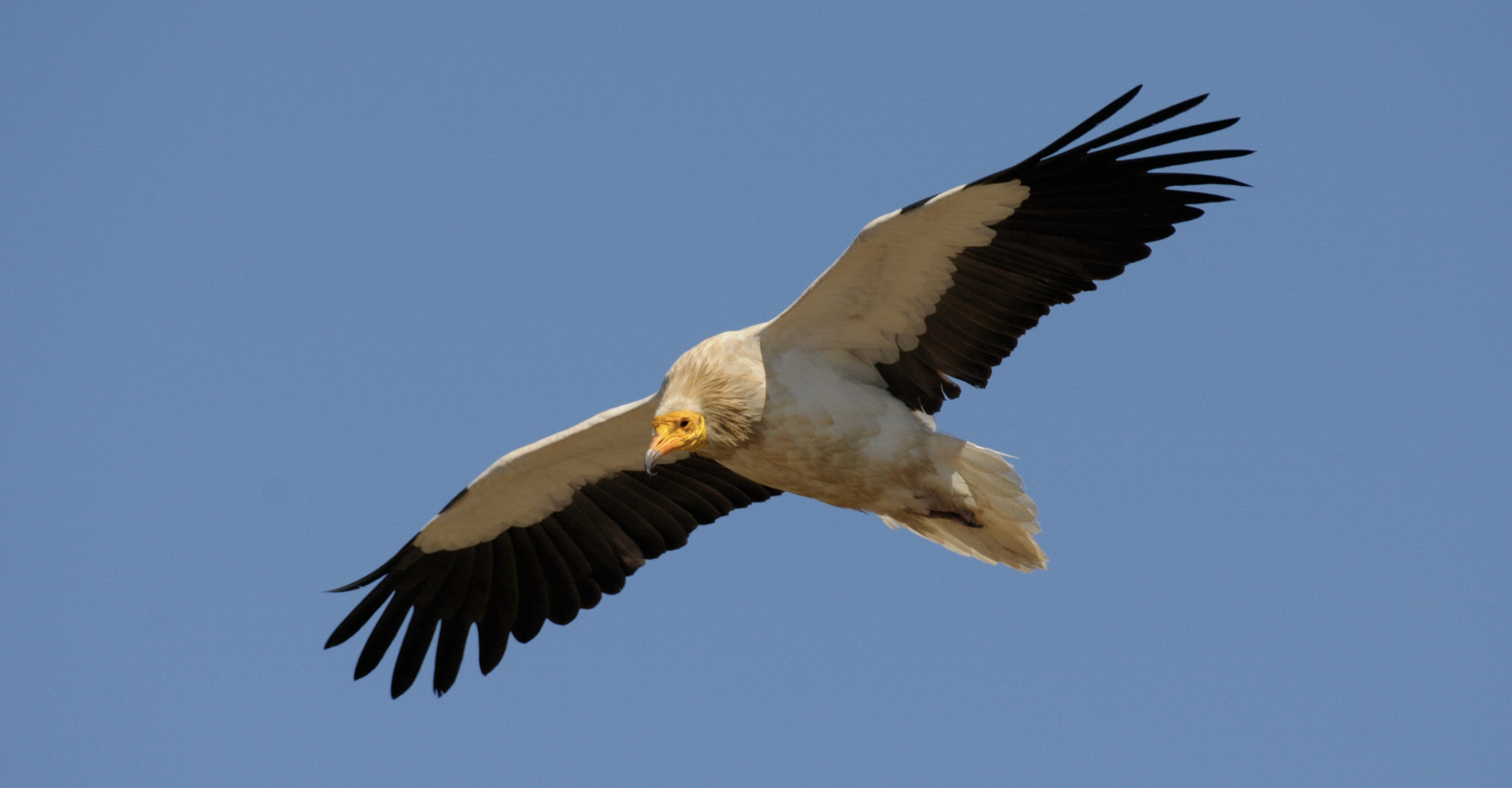The Egyptian vulture is Europe’s most threatened vulture species – classified as “Endangered” at global level. While the three others European vulture species are registering positive trends across Europe, Egyptian vultures still continue to decline in most regions in the continent (and elsewhere).
In the last couple of years the VCF has been involved in a number of projects and initiatives with this species, playing a significant role in the efforts to reverse this trend – from surveying the wintering population in Extremadura to tagging and surveying populations in Turkey, and working on the international species action plan. Now the VCF and a number of other partners are starting an ambitious project that aims to enhance Egyptian vulture populations in the Douro canyon (115+ pairs) – one of the densest populations in the Iberian Peninsula, and Portugal’s remaining stronghold for the species.
The new project – called LIFE RUPIS, aims to strength the populations of Egyptian Vulture in Douro International valley, through improved breeding success and reduction of mortality.Within this project, the VCF and partners, including SPEA (BirdLife in Portugal), ATN and Palombar (regional conservation organisations in NE Portugal), the Junta de Castilla y Leon & the Fundación Patrimonio Natural de Castilla Y León, the Portuguese electricity distributor EDP-D, the Portuguese statutory conservation agency ICNF and the Portuguese environmental police force (GNR), will improve management on two trans-border protected areas.
There will be actions to tackle the most important threats to Egyptian vultures, namely food shortages, degradation of the habitat, Electrocution risk and Illegal use of poison
We will engage with local farmers, cattle breeders, foresters and game keepers to develop and demonstrate sustainable practices. We will also implement a network of vulture feeding stations. The project has an extensive communication and awareness component, directed to local stakeholders, local school children and the general public.
The project has started recently, with a first meeting of the partners in Mogadouro (Portugal), that served to plan in detail the first phases of project implementation. Over the next 4 year the VCF will be heavily engaged in actions in the region with this species – please watch this space for news and updates on this project, which we hope will start turning the tide for this emblematic – and most threatened species.


